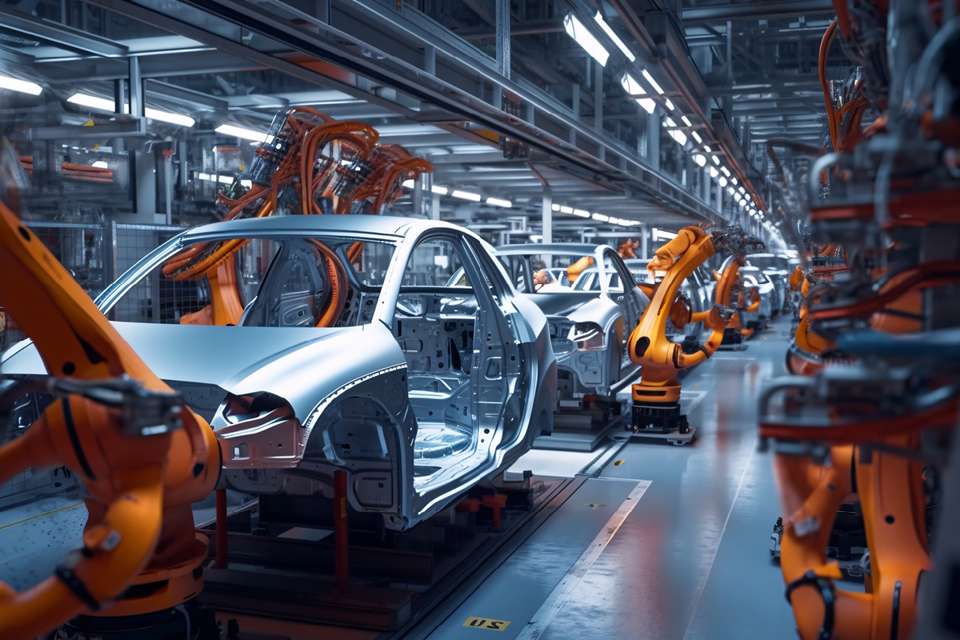Car manufacturers can overcome declining profits from internal combustion engines (ICE) by entering strategic partnerships to scale up production.
Owen Edwards, of Grant Thornton, believes OEMs must seriously invest in areas including supply chain, vehicle distribution and technological evolution to achieve sought-after economies of scale.
He said: “The scaling up of the supply chain cannot be isolated to new drivetrain technology as traditional OEMs still aim to make profits from ICE vehicles and legacy parts. ICE vehicles reduce their market share on a global basis, and producing such vehicles will inevitably become less profitable. Automotive manufacturing plants depend on volumes and high levels of throughput to make profits.
“Some OEMs are reported not to be making sufficient profits from BEV sales and have continued to undertake increased investment in new battery and vehicle technology. Therefore, with declining sales of ICE vehicles and insufficient profits from BEVs, OEMs are planning for the future, especially when considering the future of ICE vehicles.”
Owen says Geely and Renault’s joint-venture power plant company is a prime example.
“Partnerships like these are hugely important to gain economies of scale and maintain profits when the sales of ICE are slowly declining
“Renault has predicted that the partnership could produce up to 80% of ICE-vehicle power plants global requirements, although no timescale has been outlined for that ambitious target,” Owen added.
Geely and Renault Group signed a joint venture agreement, in July, to launch a new business dedicated to develop and build ICE and hybrid powertrains.
As the market continues to evolve with new drivetrain technologies, batteries and e-fuels, there has been a corresponding investment increase in autonomous vehicles and mobility services, meaning OEMs forced to spend even greater sums in their supply, distribution and retail chains.
Cox Automotive’s Insight and Strategy Director Philip Nothard thinks automotive manufacturing faces severe challenges, making partnerships and scaling up an increasingly easy decision.
He said: “Much activity in automotive at the moment has involved OEMs protecting their businesses through mergers and acquisitions. Scaling up is the logical extension of this.
“We are seeing a new willingness on the part of OEMs to join forces to overcome the problems that have faced manufacturing in recent years. Serious cooperation must be welcomed, especially given the mutual benefit inherent in such partnerships. However, more needs to be done to navigate the strongest headwinds faced by the industry for decades.”
OEMS are also joining forces to reap the rewards in customer service areas. Ford and Tesla recently announced a partnership in the US, which allows the former’s customers to use the latter’s charging network.
Owen concluded: “Whether it’s supply chain or distribution of vehicles, continued technological evolution and the significant investment required, the automotive industry is being forced to consider different options to gain economies of scale and achieve the return on investment necessary to satisfy shareholder demands.”




















Login to comment
Comments
No comments have been made yet.